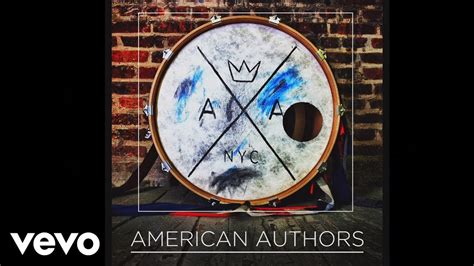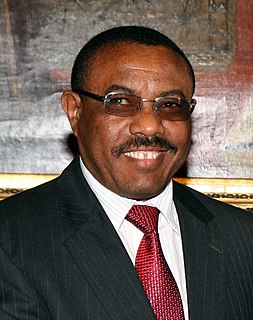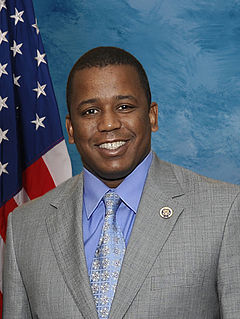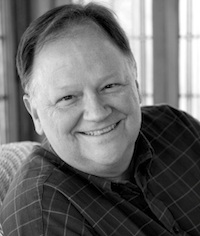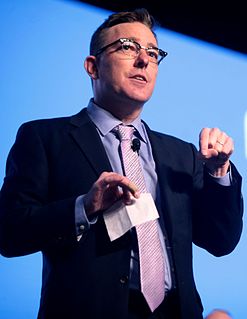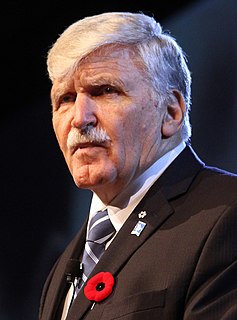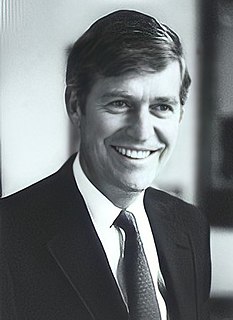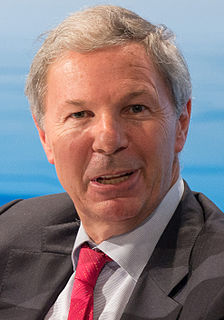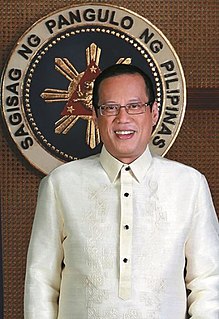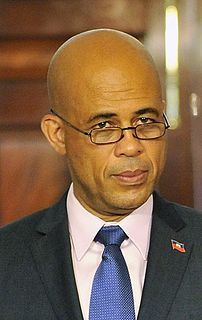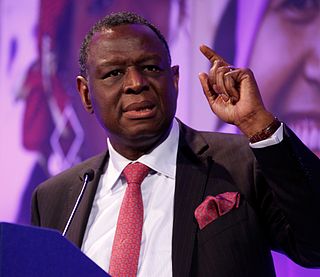Top 51 Peacekeeping Quotes & Sayings
Explore popular Peacekeeping quotes.
Last updated on November 28, 2024.
We have before us the opportunity to forge for ourselves and for future generations a new world order, a world where the rule of law, not the law of the jungle, governs the conduct of nations. When we are successful, and we will be, we have a real chance at this new world order, an order in which a credible United Nations can use its peacekeeping role to fulfill the promise and vision of the U.N.'s founders.
Without inner peace, outer peace is impossible. We all wish for world peace, but world peace will never be acheived unless we first establish peace within our own minds. We can send so-called 'peacekeeping forces' into areas of conflict, but peace cannot be oppossed from the outside with guns. Only by creating peace within our own mind and helping others to do the same can we hope to achieve peace in this world.
UN peacekeeping operations are now increasingly complex and multi-dimensional, going beyond monitoring a ceasefire to actually bringing failed States back to life, often after decades of conflict. The blue helmets and their civilian colleagues work together to organize elections, enact police and judicial reform, promote and protect human rights, conduct mine-clearance, advance gender equality, achieve the voluntary disarmament of former combatants, and support the return of refugees and displaced people to their homes.
Well, Nigeria has played a constructive role in peacekeeping in various parts of West Africa. But unless and until Nigeria itself is democratic and respects human rights, it too may well be a source of much greater instability as political repression limits the ability of the people of Nigeria to achieve their full potential.
Consider that in a galaxy far, far away (otherwise known as the 1990s), President Clinton felt that he had to assure an isolationist Republican Congress - repeat after me, an isolationist Republican Congress - that the 20,000 U.S. peacekeeping troops he promised Bosnia as part of the Dayton Accords would only stay deployed for a single calendar year.
Most governments only want to deploy a peacekeeping force where there is a peace agreement and there is peace to keep. They are very hesitant about putting their men and women in harm's way. It is extremely difficult to get the troops if you do not have the consent of the country where you are deploying.
The [George W.] Bush administration tripled its aid package to Afghanistan. [Hamid] Karzai finally (and courageously) announced that warlords will be forbidden from holding office in the future government. And finally, NATO agreed to expand the peacekeeping forces to troubled areas outside of Kabul.
Working with the UN's diplomacy and development arms, we can prevent minor differences from escalating into wars. When conflicts do break out, UN peacekeepers should play a role in defusing and settling them. Without giving up our sovereignty, we can help the UN with better training and better command and control in order to develop more effective peacekeeping forces.
Peacekeeping there is still just totally ineffective. The UN is now saying they are sending reinforcements in the area, but I have no particular reason to believe that they will be any stronger than the force there. In Southern Kordofan, it's mostly an Egyptian battalion, and that's really problematic because the population already doesn't trust the Egyptians; they think they're on payroll of the north. So we already have a force that is seen as compromised.
Let's recall Bosnia in 1995. As we know well, the European peacekeeping contingent, represented by the Dutch troops, did not want to get involved with one of the attacking sides, and allowed it to destroy a whole village. Hundreds of people were killed or injured. The tragedy in Srebrenica is well known in Europe.
On this International Day of UN Peacekeepers, let us pay tribute to the men and women from countries across the world who serve selflessly, tirelessly and fearlessly in UN peacekeeping operations. Let us remember the heroes who have laid down their lives in lands far from their own in the service of peace. And let us reaffirm our commitment to building a world free from the scourge of war.
This is the one international institution we have in which governments get together to work collectively for a common purpose. International crises, by definition, require international solutions. Peacekeeping is a response to conflict, is a response to situations in which often it is not the business of any one particular country to get into. It seems to me, therefore, that the world will for the foreseeable future need peacekeeping.
I believe that a country, Russia in this case, which can defend the honour and dignity of its citizens, protect their lives, and fulfill its international legal commitments under the peacekeeping mandate, will not find itself in isolation, no matter what our partners in Europe or the United States may think, expressing their bloc mentality.
The UN was very media-shy, and its relationship with the press was very controlled; although periodically I spoke to the press, the rule was, only the secretary-general speaks to the press; only the secretary-general makes... So you would see many situations where under-secretaries-general would come in and speak. I opened that, and I encouraged all of them to speak in their areas, whether it was peacekeeping or humanitarian efforts.
